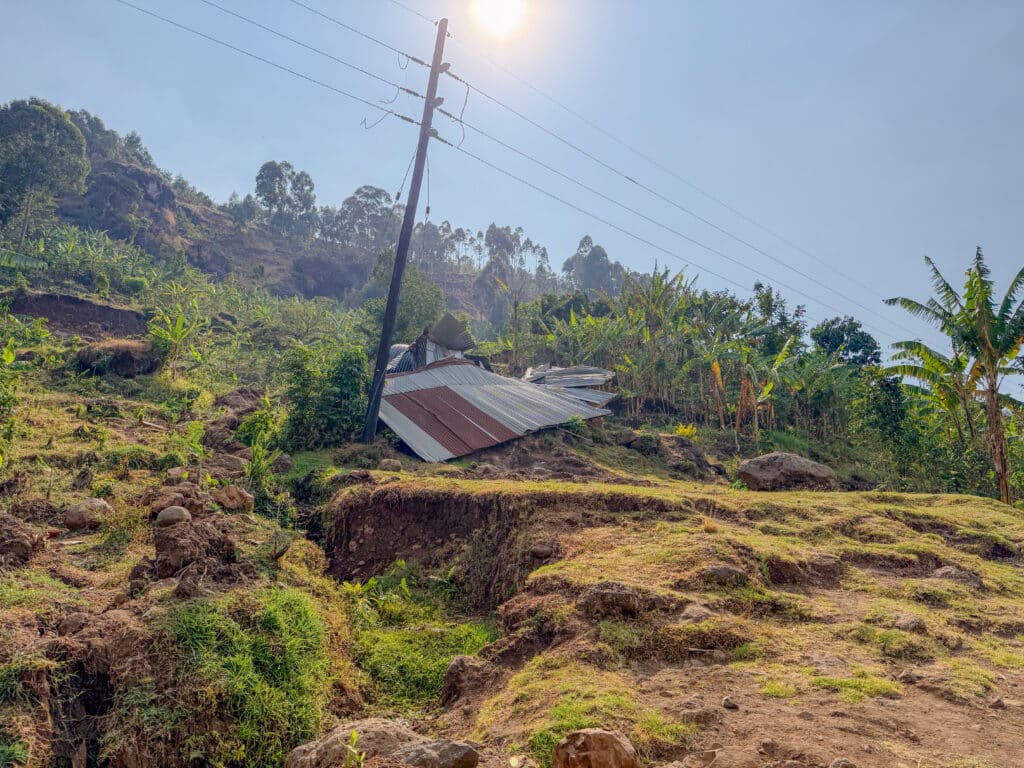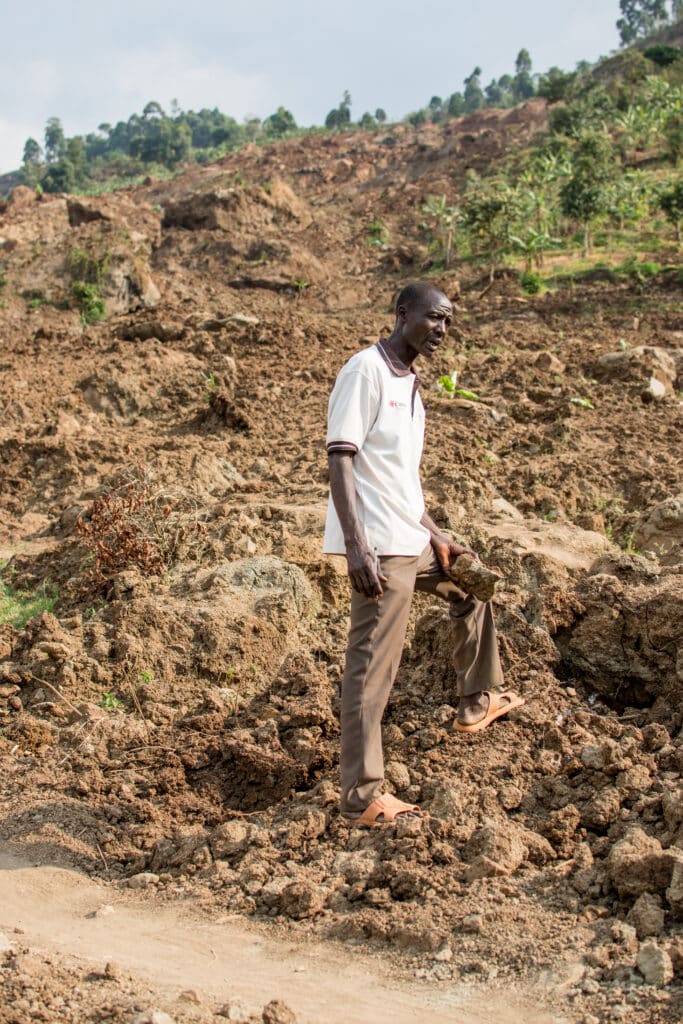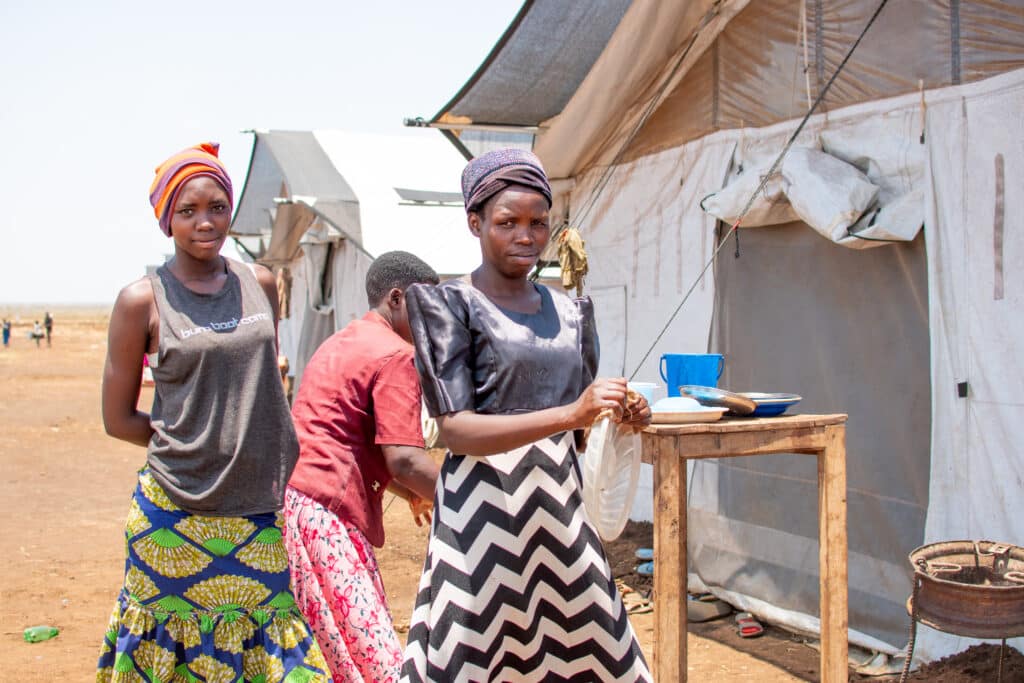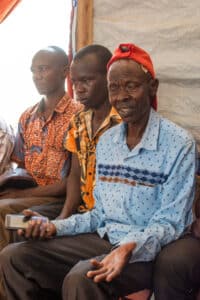World Refugee Day: Recognizing the Rising Crisis of Environmental Displacement (4 Min. Read)
Each year, June 20 marks World Refugee Day, a day when people around the world come together to honor those who have been forced to flee their homes.
Among the many challenges refugees face, mental health, particularly depression, stands out as a significant concern. With 32% of displaced individuals experiencing depression, the emotional toll compounds the already overwhelming obstacles they must overcome in their journey to rebuild their lives.
Sub-Saharan Africa hosts a staggering 18 million refugees, accounting for 25% of the world’s refugee population. Uganda alone has absorbed more than 1.5 million refugees, most of whom are fleeing conflict in the bordering countries of the Democratic Republic of the Congo and South Sudan.
While conflict, violence, and persecution remain the primary drivers of displacement, these statistics don’t account for the growing number of environmental refugees who are forced to leave their homes due to environmental changes and disasters, primarily related to climate change and natural resource depletion. These changes can be rapid (like floods) or slow-onset (like drought or deforestation).
As of 2024, 9.8 million people globally were internally displaced due to natural disasters. Not all of these natural disasters were climate-related (such as earthquakes, tsunamis, or volcanic eruptions), but as climate change continues to make extreme weather events more common, the number of environmental refugees will only increase.
The Mental Health Toll of Displacement
In December 2024, heavy rains swept across Uganda, triggering widespread flooding and catastrophic landslides. The mountainous Elgon region along the Kenya-Uganda border was hit hard. A devastating landslide in Bulambuli buried four villages and 125 houses; 49 bodies were recovered, but 25 people remain missing. Nearly 3,000 people were displaced and now live in a temporary resettlement camp.

The camp itself was established after the first landslide in Bududa in 2010. Decades of deforestation have exacerbated the number of landslides in the region, and with increasingly unpredictable weather patterns, heavier rainfall each year has resulted in more frequent flooding.
The Bulambuli camp commandment commented, “We have degraded the environment, cut all the trees, had a population explosion. It’s why we have all these challenges now. [But] as a district, we are trying to restore areas affected by climate change. We are having people plant trees and encourage people to leave high-risk areas.”

The approximately 2,700 individuals displaced by the landslide in December face significant mental health challenges. The trauma of losing homes, livelihoods, and loved ones are triggers for depression alone, but compounded with the difficult living conditions of the camp, depression cases are high.
In the camp, resources are scarce. A water truck only comes once per day, and each person is given their daily ration of water, making hygiene a constant challenge. The food is limited and lacks nutritional value, which has led to high cases of malnutrition in the children who reside there. The camp is also hot and crowded, leading to the spread of respiratory infections and skin diseases.

Hope, Resilience, and the Path Forward
StrongMinds partnered with the Red Cross to provide psychological first aid to those immediately affected by the disaster, as well as leading our standard six-week group therapy model.
 Amid the harsh camp conditions, personal stories of loss and resilience emerge, such as that of Joseph, whose experience highlights the profound emotional toll of the disaster.
Amid the harsh camp conditions, personal stories of loss and resilience emerge, such as that of Joseph, whose experience highlights the profound emotional toll of the disaster.
Joseph had only been married for a year and had a baby when the landslide hit and took both his wife and child. When the government showed up to take him to the Bulambuli camp, he refused to go because they were still looking for his wife and child. He eventually had no choice. Once at the camp, he joined a StrongMinds therapy group where he learned to open up.
Joseph shared that the emotional anguish hasn’t left, but he now has the tools to process his grief. “Some days are good, some days are harder,” he said. “But I know life goes on and I know how to move forward.”
Emmanuel, a fellow resident of the camp, shared the mental challenges caused by the difficult living conditions and the loss of personal agency. “Where we lived, it gets very cold. Coming here, it is hot, so hot. The feeding is [also] not ok here. Back home, we could eat whatever we want, whenever, but here it is [basic food] and they just feed us once [a day]. To get the food, they are making lines. It’s something we are not used to.”
Emmanuel found immense strength in group therapy. “In the beginning, it was so hard to talk. But after completing therapy, I am stronger. I now have the courage.”
This World Refugee Day, we are reminded that the challenges faced by refugees are not just about displacement—they are about survival, dignity, and hope for a better future.
Together, we can ensure that refugees, no matter the cause of their displacement, have the support and opportunities to rebuild their lives and thrive. For Samuel, hope and resilience have become his foundation in the face of overwhelming loss. “Before, it was so hard. But right now, I am like a tree with no branches. It still grows if the branches are off. I have accepted what happened happened. I still carry on.”
